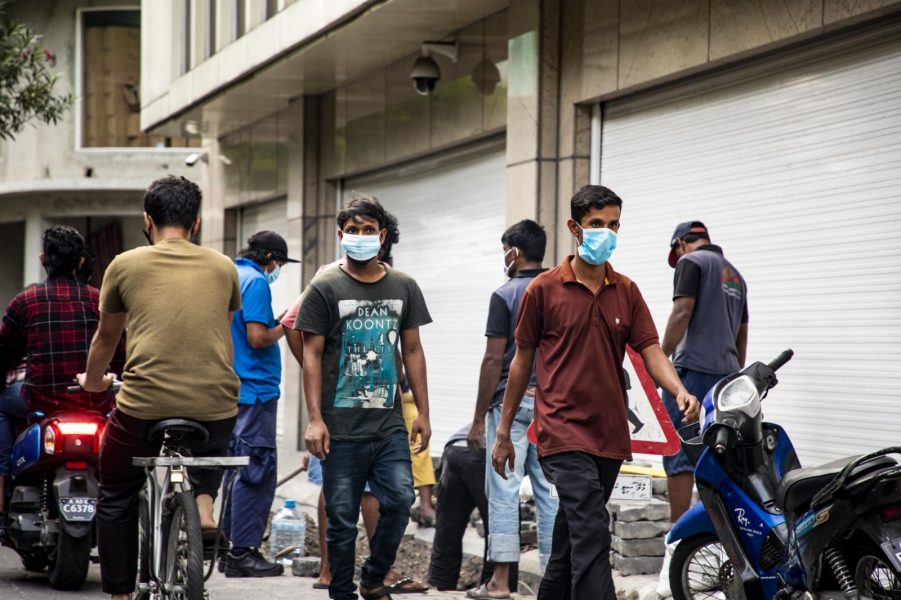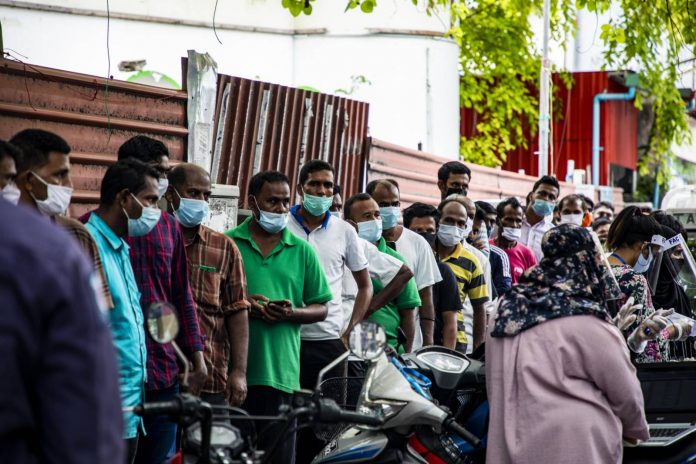In a major policy intervention, the Maldives Government has launched the new and revised Expatriate Employment Regulations. It is now published in the government gazette as Regulation Number 2020/R-62.
The complete set
The new Regulations come packed in a total of 72 pages complete with a bundle of various guidelines on related subjects. They are also integrated into the Regulations by making them schedules to the Regulations.
The pack consists of regulations on expatriate employment and individual guidelines and rules on complementary areas such as registering with the online x-pat system, grant of quotas, collection of quota fees, grant of approval to work in the country, deposits and refunds, accommodation service providers, arrangements and standards of accommodation, and disciplinary measures for breaches.

Key takeaways
1.Letter of Appointment must be delivered to the individual before he/she arrives in the Maldives. It will be considered as the temporary employment contract pending arrival in the Maldives and execution of a proper employment contract. A sample template of the letter of appointment is found in the regulations.
2. An expatriate employee’s employment may only be terminated in accordance with the Employment Act.
3. All requests for approvals required under the regulations must be processed through the x-pat online system. Two categories of people can register with the system: employment agencies and accommodation service providers who provide and arrange accommodation on a commercial basis for employers.
4. Each employer has to designate a specific representative to deal with the x-pat system on its behalf, and that representative ought to be a Maldivian. Also, an employer can appoint an employment agency to deal with the system on its behalf.
5. A representative so appointed shall take personal responsibility for all actions completed through the system using his/her credentials.
6. Employment approval for individual employees would only be granted under a quota. The quota applications are processed through the designated job portal of the national job center for employers registered on it.
7. A quota fee is charged as per quota fee guidelines.
8. Engaging an expatriate for any work in excess of or outside a quota is not allowed.
9.An employer may not, after bringing an expatriate employee to the Maldives under a specific quota issued to that employer, allow that expatriate to be transferred to or handed over to another employer or cause that employee to work for another employer except as may be allowed under the regulations.
10. An expatriate may only be brought in for work after securing his/her employment approval. The approval is valid for the duration of the quota. An expat brought in under one employer may not be allowed to transfer to another employer unless the new employer has secured the employment approval for that employee.
11. Neither the designation nor the worksite of an expatriate employee may be changed except after securing necessary approvals.
12. It is prohibited to engage an expatriate employee to work in an employment or cause him/her to work for a person without securing the relevant employment approval for that employee.
13. Payment of a deposit is required. The government can use the deposit to repatriate the employee or pay for requirements which remain unfulfilled by the relevant employer.
14. Expatriates may be employed and maintained in employment in fulfilment of requirements of the Employment Act, regulations made under it, and in a manner not inconsistent with the Act.
15. The employer is to arrange repatriation of employees on expiry or termination of employment and when directed by a government agency.
16. Registration of expatriate employees across the country is made obligatory. The register is to be kept and maintained at every local council including city councils. If an employee is ordinarily resident on an inhabited the island on which he/she is resident will register him/her. If he/she is on an uninhabited island, the inhabited island that is closest to his work site will register him/her.
17. Expatriates are to respect local law. If there is a breach, action would be taken in accordance with that law.
18. If any of the rights of an expatriate employee is believed to be infringed, he/she may submit the matter to the Labor Relations Authority for resolution.
19. The Ministry has the right to inspect every site at which an expatriate is employed or accommodated to ensure compliance with the law.
20. New regulations come into effect from the date of publication. Old regulations are repealed. Actions were taken, obligations and rights created under the old regulations are to remain valid and continuing.
Guidelines Attached
The regulations come with 7 individual guidelines found in 7 separate schedules that are made part of the regulations.
The entire pack is broken down as below:
The Regulations – Expatriate Employment in the Maldives (16 pages, 40 provisions)
Schedule 1 – Registration with and use of x-pat system (8 pages, 18 provisions)
Schedule 2 – Grant of quotas for engaging expatriate employees (8 pages, 14 provisions)
Schedule 3 – Collection of quota fees (5 pages, 14 provisions)
Schedule 4 – Grant of approval for expatriates to work in the Maldives (13 pages, 22 provisions)
Schedule 5 – Deposits and refunds (5 pages, 11 provisions)
Schedule 6 – Arrangement of accommodation by employers (11 pages, 31 provisions)
Schedule 7 – Disciplinary Measures (5 pages, 10 provisions)
About the Author; Nasheed & Co Law Firm is one of the leading corporate and commercial law firm in the Maldives, established in 1997. They are an efficient, convenient, and responsive firm of professionals providing a client-centric legal concierge service offering the full spectrum of corporate and commercial law advice assistance and support.
















